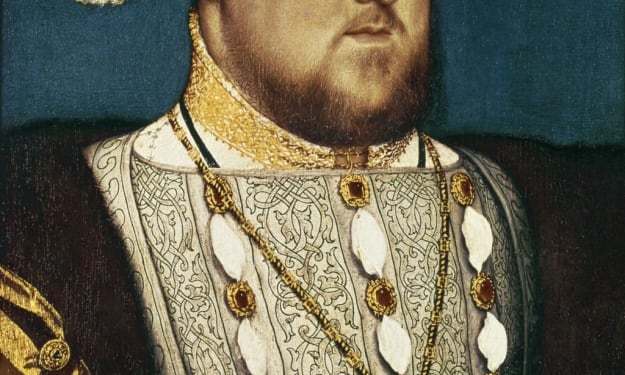
The English dynasty, which ruled England from 1485 to 1603, was composed of members descended from the Houses of Lancaster and York. It was essentially a chess game, where members were eliminated to reach the English throne. It had been seen fought by multiple houses over the centuries. Gruesome, violent, and filled with prolific individuals, England has seen its fair share of battles from royal members trying to win over the power that it held by dominating the entire island. The House of Tudor was no exception, and it was the only house in English history to break ties with the Roman church, produce its own church managed by a king, and produce its own bible written in English. So who founded such a house that is still considered by many to be one of the most famous and well-known houses in English history? Well, sit down and relax and delve deep down into the history of the king that ended the War of the Roses, a monarch that was obsessed with trying to procreate a male heir into the English family by constantly marrying, a king who was considered by many to be the first English monarch to be raised as a protestant, a queen known for killing and wiping out protestants and later on being remembered as the “bloody queen of England” and the “virgin” queen that changed England for the better.
Prince Edwards’s birth and childhood:
Prince Edward VI was King Henry VIII’s only legitimate son; his mother, Henry’s third wife, Jane Seymour, died after giving him birth. His sisters were Queens Mary and Elizabeth. Although Edward has traditionally been viewed as a frail child who was never in good health, some recent records have maintained that until several years before his death, he was a strong, athletically inclined youth with a particular interest in playing many sports like his late father. His tutors, Sir John Cheke, Sir Anthony Cooke, and Roger Ascham found him to be intellectually gifted just like his father. When he was just 4 years old, he was considered a precocious student who learned many languages ranging from Greek, Latin, French, and theology. By age 13 Edward had read Aristotle’s Ethics in the original Greek and was translating Cicero’s De philosophia into that language.
Power and Northumberland:
On January 28, 1547, Henry VIII died at his early 50’s, and Edward, then age nine, succeeded to the throne. Henry had decreed that due to Edward’s small age the government was to be run by a council of regency, but Edward’s uncle from his mother’s maternal side, Edward Seymour, duke of Somerset, wielded almost supreme power as regent, with the title of protector. Factions soon developed around the king, In 1549 Somerset was overthrown by the unscrupulous John Dudley, earl of Warwick (soon to be duke of Northumberland). Northumberland put Edward forward at the age of 14 as entitled to all the power of Henry VIII, but the young king was the mask behind which Northumberland controlled the government. The measures taken by both Somerset and Northumberland to consolidate the English Reformation, however, agreed with Edward’s own intense devotion to Protestantism.
Prince Edwards demise:
In January 1553 Edward showed the first signs of tuberculosis, and by May it was evident that the disease would be fatal. Working with Northumberland, he was determined to exclude his two half-sisters, Mary and Elizabeth, from the succession and to put Northumberland’s daughter-in-law, Lady Jane Grey, and her male heirs in direct line for the throne. As a result, a power struggle erupted after Edward’s death. Lady Jane Grey ruled for nine days (July 10–19, 1553) before she was overthrown by the more popular Mary I (reigned 1553–58).
Recapitulation:
Edward displayed a potential for effective administration, but many scholars have felt that his religious zeal and extreme obstinacy might have imprinted a much firmer and more uncompromising Protestantism on the Church of England, allowing him to be more focused on his fears rather than controlling the entire country.
About the Creator
G. Ali
A history enthusiast and an admirer.






Comments (1)
Great! Wonderful work!